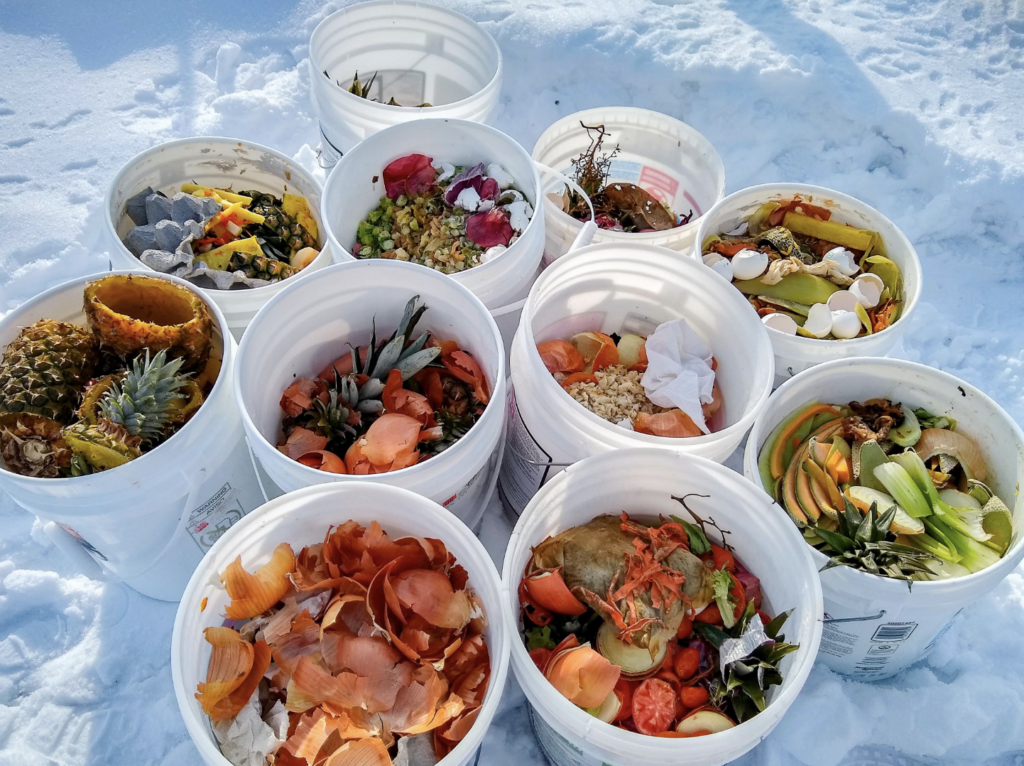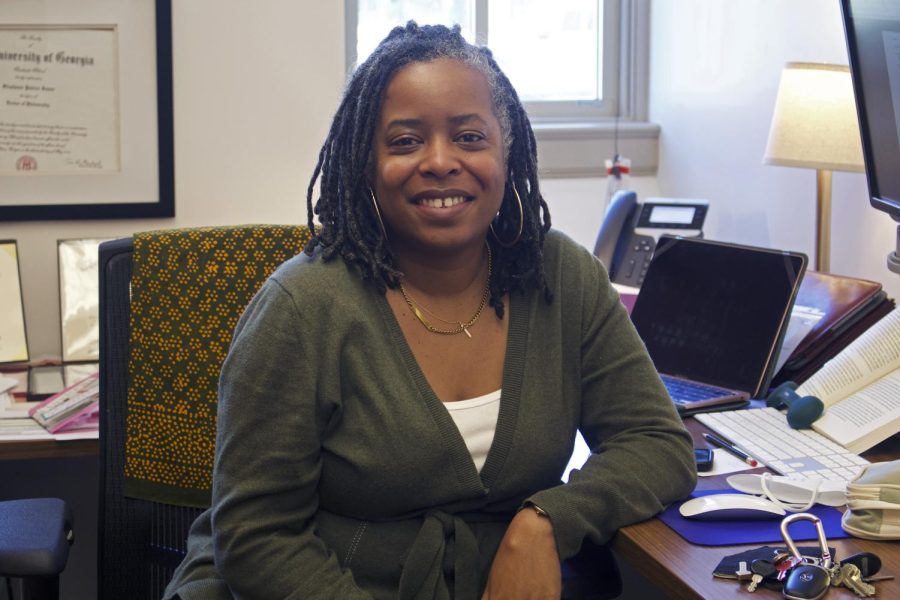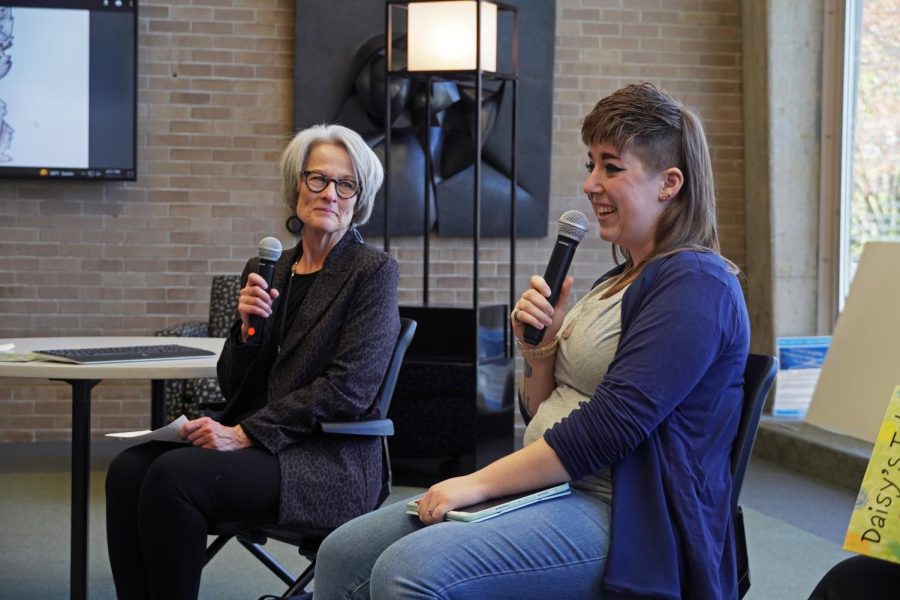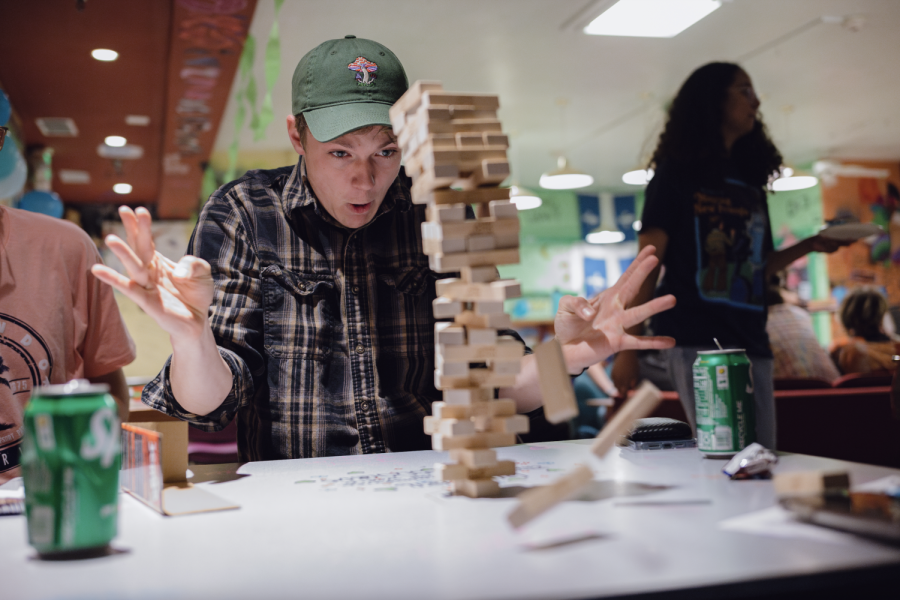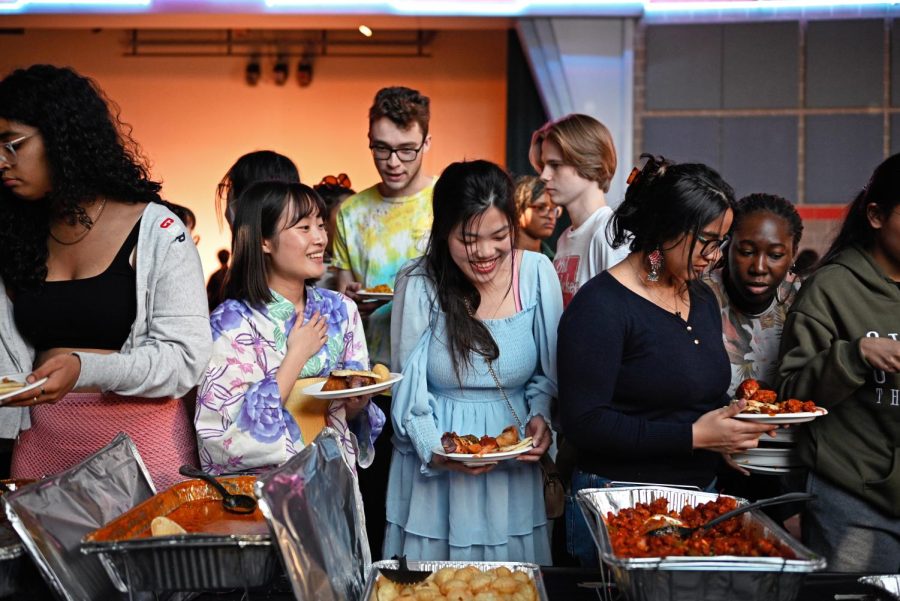A community composting project may be the solution to sustainable living in Grinnell. Following the reductions made to the city’s recycling program over the past two years, one Grinnell College alum is trying to do her part to make sure Grinnell stays green.
Plate to Plant, run by Bella Kugel `20, began its pilot program in September. Kugel now picks up compost every Wednesday from participating Grinnell residents and deposits the organic waste at Marvin Gardens, a free-to-pick garden run by community development organization Imagine Grinnell. The program costs $5 a week.
“That only covers the cost of the labor it takes to collect buckets, and deal with them, and wash them, and some of our online costs,” said Kugel. “We’re not being a business, we’re not trying to make money, we’re just trying to provide a really crucial service and grow that service as much as we can in Grinnell.”
To maximize eco-friendliness, Kugel picks up members’ compost buckets on her bike — even at the heart of an Iowa winter. “Going up hills hauling 200 pounds of compost is a goddamn workout,” Kugel said. “I think my thighs have grown by like two inches.”
Grinnell residents currently pay a monthly fee to the city based on the size of their trash bin for municipal curbside trash pickup. In order to recycle, residents must haul recyclables themselves to the Public Service Department during their open hours. There’s also a brush dump outside of town, where yard waste can be deposited for a fee. To cut costs, the City of Grinnell did away with its glass recycling program in 2019.
Kugel believes that a lot of the trash produced by Grinnell doesn’t need to head to the landfill.
“30-50 percent of an average trash bin is made of compostable material,” she said, “and another about 40 percent is recyclables, so really most of what gets put in the trash bin isn’t truly trash. We could save the city a significant amount of money if everyone had access to a composting program.”
Composting is essentially just human management of a simple process that occurs regularly in nature: decomposition. Most things that are naturally decomposable are biodegradable, and most things that are biodegradable are compostable.
According to Kugel, meat and dairy products often pose a challenge to composters, as their strong smells during the decomposition process can attract vermin to the composting pile. But, through careful monitoring and management, Plate to Plant is able to accept these products and compost them effectively.
By turning the pile and adding water, and even altering the balance of material, Kugel says Plate to Plant is able to make sure that the right bacteria is doing the right thing at the right time. “That’s why you would add wood shavings or hay or what you might think of as brown, crunchy materials to compost as well,” she said, “It can’t just be the food scraps.”
Going forward, Plate to Plant is hoping to expand by collecting compost from restaurants and institutions such as the Mayflower Community. Kugel has also applied for grants on behalf of the program to reduce dependence on participant fees.
“We’re really looking to eliminate or deeply decrease the cost,” Kugel said. “We think $5 a week is too expensive. … Obviously it shouldn’t cost money to be ecologically friendly and manage your compost.”
Another avenue for expansion is picking up compost from College-associated housing, such as project houses and houses on High Street. The College started on-campus composting program in 2019.
As a recent graduate herself, Kugel knows that the appeal of composting for students is more than just ecological friendliness. “I feel like being away somewhere for school feels a little dissociative,” she said, “and I found that composting is one of those things that makes me feel more rooted in a place and have a little bit more care for where you’re living and who you’re living with.”
Visit https://www.platetoplant.org/ or @platetoplant on Instagram.


















































